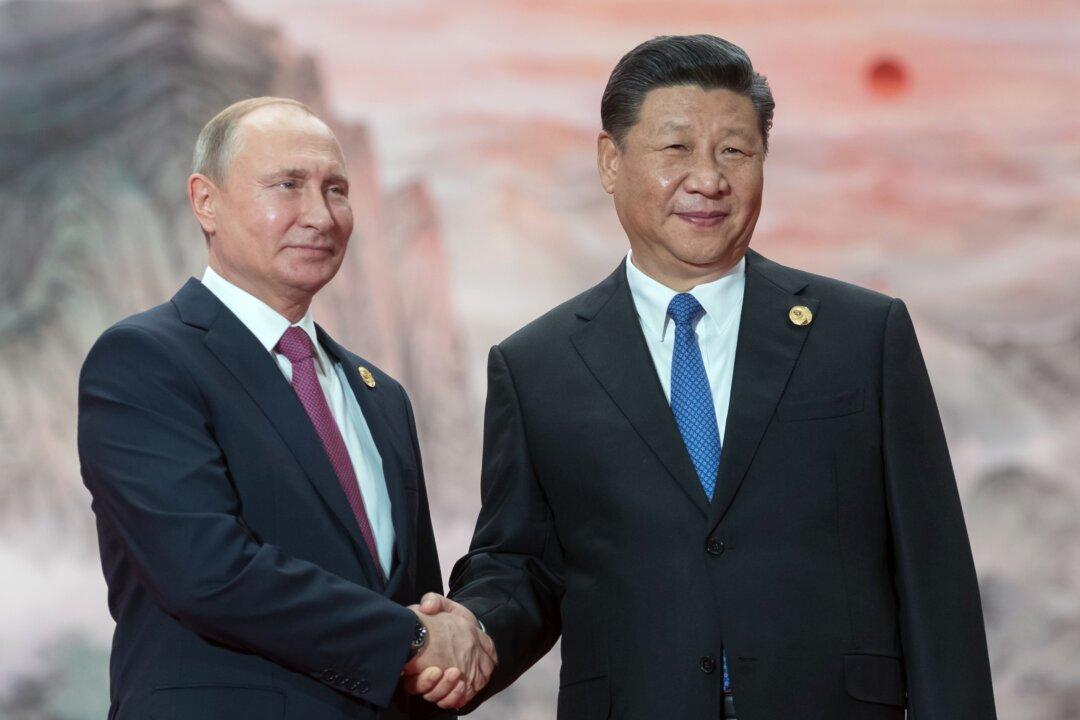Chinese Communist Party (CCP) leader Xi Jinping reaffirmed China’s commitment to Russia during a June 15 phone call with Russian President Vladimir Putin, according to Chinese state-owned media.
“China is willing to work with Russia to continue supporting each other on their respective core interests concerning sovereignty and security,” Xi said, “as well as on their major concerns, deepening their strategic coordination, and strengthening communication and coordination in such important international and regional organizations as the United Nations, the BRICS mechanism, and the Shanghai Cooperation Organization.”




